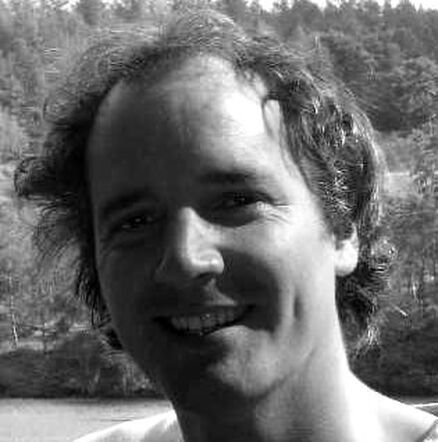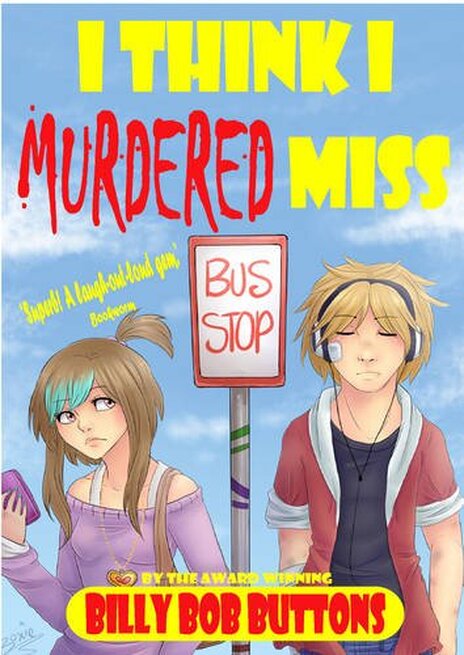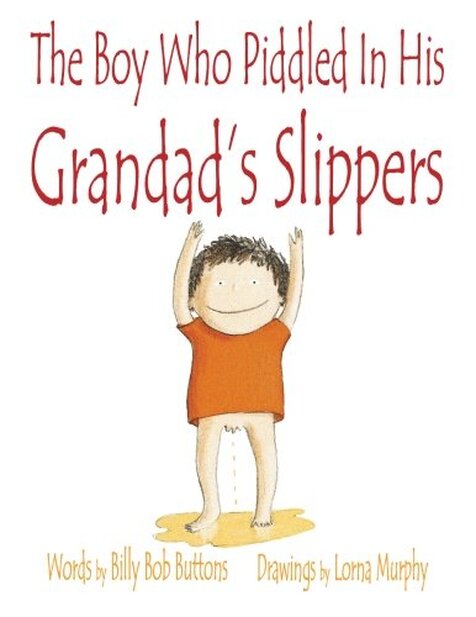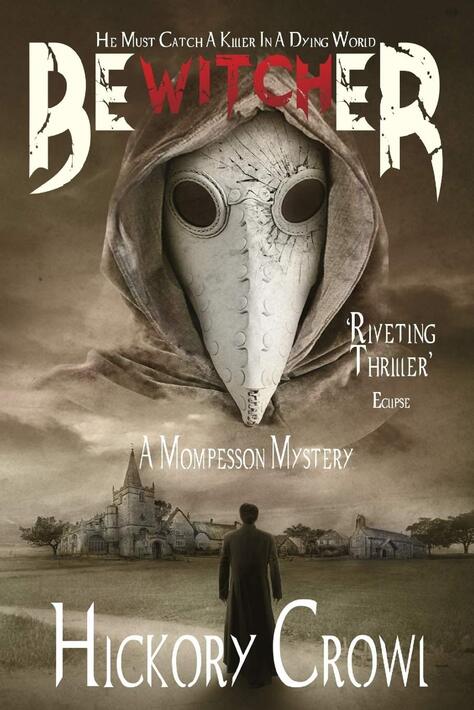
It gives me great pleasure to welcome Edward Trayer onto the website today. Edward is an award-winning and bestselling author of 18 children, YA and adult books. He writes under two distinctive pen names: Billy Bob Buttons and Hickory Crowl. He is also the founder of the Wishing Shelf Independent Book Awards.
Alex: Tell us a bit about yourself, Edward.
Edward: I was brought up pretty much everywhere! My father was in the RAF so I went to ten different schools. And, at every school, I had to ‘do battle’ with the school bully. I got very good at running, hiding and (when there was nowhere left to run and hide) boxing too. In fact, at the last two schools I went to, I won a few fights proving that you do get better if you practice. In terms of interests, I love tennis. I have been playing for almost 40 years and my backhand still sucks. But I love playing anyway.
Alex: Tell us a bit about yourself, Edward.
Edward: I was brought up pretty much everywhere! My father was in the RAF so I went to ten different schools. And, at every school, I had to ‘do battle’ with the school bully. I got very good at running, hiding and (when there was nowhere left to run and hide) boxing too. In fact, at the last two schools I went to, I won a few fights proving that you do get better if you practice. In terms of interests, I love tennis. I have been playing for almost 40 years and my backhand still sucks. But I love playing anyway.

Alex: How would you describe your writing, and are there particular themes that you like to explore?
Edward: I write mostly children’s books and I very much enjoy switching genres as often as possible. A mystery here, a comedy there. The first book I ever penned was Felicity Brady and the Wizard’s Bookshop. I was an English teacher at the time and wrote in the evenings when I should have been marking my student’s work. If I was your English teacher in the 1990s, I apologise for being so terrible.
Alex: Are you a writer that plans a detailed synopsis or do you set out with a vague idea and let the story unfold as you write?
Edward: I’m a planner. I LOVE planning a novel. Then, when I’m writing the story, I enjoy ignoring the plan as often as possible. Very odd, I know, but it works for me. I think a story should evolve over time. When I deliver literacy workshops to children in schools I always say it’s good to plan, but don’t be shackled by it. If you think of a better idea, go for it!
Alex: Tell us about your latest novel.
Edward: I’m presently writing a YA post-apocalyptic novel entitled The Skeleton Clock. Here’s the blurb: When the comet hit, North and South America were destroyed. The mighty Mississippi evaporated, the streets of New York melted, and the Amazon forest burnt to ash. It was only the beginning.
A century later, Amaryllis Storm is a sniper in a rebel army in a ravaged world overrun by terrifying howlers. Sent deep into enemy territory, she must hunt them down and stop them destroying what’s left of her planet.
When she’s ordered to report to Rebel HQ, aka ‘The Nest’, she discovers there’s a secret hidden there. The secret to who she is and where she’s from. The problem is the secret’s on Level Seven.
There is no Level Seven.
Edward: I write mostly children’s books and I very much enjoy switching genres as often as possible. A mystery here, a comedy there. The first book I ever penned was Felicity Brady and the Wizard’s Bookshop. I was an English teacher at the time and wrote in the evenings when I should have been marking my student’s work. If I was your English teacher in the 1990s, I apologise for being so terrible.
Alex: Are you a writer that plans a detailed synopsis or do you set out with a vague idea and let the story unfold as you write?
Edward: I’m a planner. I LOVE planning a novel. Then, when I’m writing the story, I enjoy ignoring the plan as often as possible. Very odd, I know, but it works for me. I think a story should evolve over time. When I deliver literacy workshops to children in schools I always say it’s good to plan, but don’t be shackled by it. If you think of a better idea, go for it!
Alex: Tell us about your latest novel.
Edward: I’m presently writing a YA post-apocalyptic novel entitled The Skeleton Clock. Here’s the blurb: When the comet hit, North and South America were destroyed. The mighty Mississippi evaporated, the streets of New York melted, and the Amazon forest burnt to ash. It was only the beginning.
A century later, Amaryllis Storm is a sniper in a rebel army in a ravaged world overrun by terrifying howlers. Sent deep into enemy territory, she must hunt them down and stop them destroying what’s left of her planet.
When she’s ordered to report to Rebel HQ, aka ‘The Nest’, she discovers there’s a secret hidden there. The secret to who she is and where she’s from. The problem is the secret’s on Level Seven.
There is no Level Seven.

Alex: What was the first book you read?
Edward: I remember when I was 10 years old, I went up to my sister’s room to ‘cause trouble’. I was the younger brother so it was sort of my job. When I got in there, I thought, ‘I know, I’ll find her diary and write in it. That’ll annoy her.’ So, I looked under her bed to see if her diary was hidden there. But what I discovered was a box of Enid Blyton books. Over the next 2 years, I read every book in that box: Malory Towers, Famous Five, Secret Seven. At the end of the two years, I was a good reader. Thanks Enid Blyton!
Alex: How much research do you do and what does it usually entail?
Edward: I’m a collector. I collect plots, characters and settings. If I go shopping in Aldi and I see a woman in a crazy hat with a banana on top, I’ll draw a picture of that hat in my ‘Hat Book’. If I’m on holiday in Skegness and I see the most amazing door, a picture of it will go in my ‘Door Book’. Then, when I’m writing my next novel, I have a cool hat for my hero to put on and a door for my characters to go through. The trick is, if you want to be a writer, you need to keep your eyes open. Who knows what you’ll see!
Edward: I remember when I was 10 years old, I went up to my sister’s room to ‘cause trouble’. I was the younger brother so it was sort of my job. When I got in there, I thought, ‘I know, I’ll find her diary and write in it. That’ll annoy her.’ So, I looked under her bed to see if her diary was hidden there. But what I discovered was a box of Enid Blyton books. Over the next 2 years, I read every book in that box: Malory Towers, Famous Five, Secret Seven. At the end of the two years, I was a good reader. Thanks Enid Blyton!
Alex: How much research do you do and what does it usually entail?
Edward: I’m a collector. I collect plots, characters and settings. If I go shopping in Aldi and I see a woman in a crazy hat with a banana on top, I’ll draw a picture of that hat in my ‘Hat Book’. If I’m on holiday in Skegness and I see the most amazing door, a picture of it will go in my ‘Door Book’. Then, when I’m writing my next novel, I have a cool hat for my hero to put on and a door for my characters to go through. The trick is, if you want to be a writer, you need to keep your eyes open. Who knows what you’ll see!

Alex: Which was the last book you read that blew you away?
Edward: The Hunger Games. All I can say is ‘WOW!’
Alex: How do you market your books?
Edward: I visit a lot of schools. And when I say a lot, over 2,000 schools in the last 20 years or so. I deliver literacy workshops in them and do book signings for children and parents at the end of the day. It’s proved very successful, for me and for the schools.
Alex: What are your interests aside from writing? And what do you do to unwind?
Edward: Apart from playing tennis, I try to spend lots of time with my family. I have three children, Beatrix, Rebecca and Albert, plus I have the most wonderful wife in the world. That’s official; I think she won an award for it.
Alex: Which authors do you particularly admire and why?
Edward: I admire anybody who’s prepared to write a book and ‘put it out there’ for all to see. The world can be a cruel place; there are a lot of critics. But always remember, YOU WROTE A BOOK! And, for that, you should be proud.
Alex: Great answer, Edward. And thank you so much for giving us a glimpse into your writing world.
Edward: The pleasure's all mine.
Edward: The Hunger Games. All I can say is ‘WOW!’
Alex: How do you market your books?
Edward: I visit a lot of schools. And when I say a lot, over 2,000 schools in the last 20 years or so. I deliver literacy workshops in them and do book signings for children and parents at the end of the day. It’s proved very successful, for me and for the schools.
Alex: What are your interests aside from writing? And what do you do to unwind?
Edward: Apart from playing tennis, I try to spend lots of time with my family. I have three children, Beatrix, Rebecca and Albert, plus I have the most wonderful wife in the world. That’s official; I think she won an award for it.
Alex: Which authors do you particularly admire and why?
Edward: I admire anybody who’s prepared to write a book and ‘put it out there’ for all to see. The world can be a cruel place; there are a lot of critics. But always remember, YOU WROTE A BOOK! And, for that, you should be proud.
Alex: Great answer, Edward. And thank you so much for giving us a glimpse into your writing world.
Edward: The pleasure's all mine.
